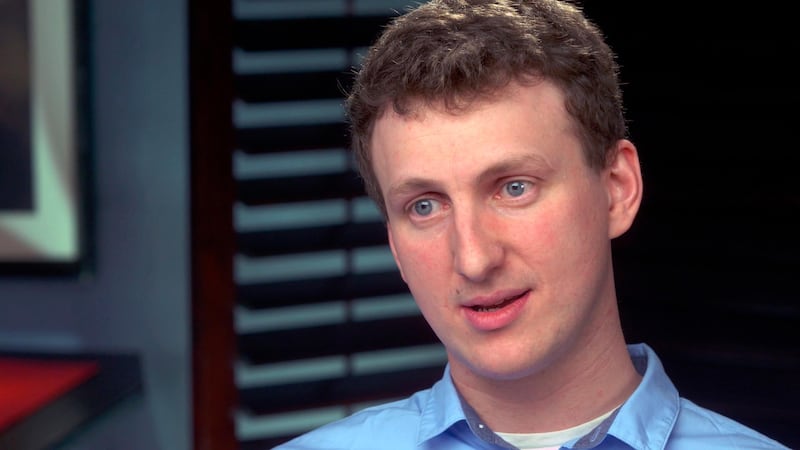The University of Cambridge academic who developed an app to harvest Facebook data dismissed the social media giant's allegations against him as a PR stunt, telling British politicians that the Facebook information he gathered wouldn't have been useful for micro-targeted advertising or to help Donald Trump win the US election.
American-born Aleksandr Kogan, who testified before a UK parliamentary committee on Tuesday, said the results of the dataset were so broad they couldn't be used to identify individuals or target undecided voters.
"I believe the project we did makes little to no sense if the goal is to run targeted ads on Facebook," he told the Culture, Media and Sports select committee chaired by Damian Collins MP .
"In fact, the platform's tools provide companies a far more effective pathway to target people based on their personalities rather than using scores from users from our work."
Mr Kogan created a personality quiz app to collect Facebook information that also scooped up information about the participant's online friends, putting the psychologist at the centre of the Facebook data crisis. British data company Cambridge Analytica allegedly used details supplied by Mr Kogan, involving 87 million Facebook users, without their knowledge when Cambridge Analytica was hired to assist in Donald Trump's 2016 election campaign.
Facebook and Cambridge Analytica blame Mr Kogan for alleged data misuse but Mr Kogan pointed the finger of blame back at the companies on Tuesday, claiming he is a scapegoat.
“I think they [Facebook] realise that their platform has been mined left and right by thousands of others and I was just the unlucky person that ended up somehow linked to the Trump campaign, and we are where we are,” Mr Kogan told Mr Collins during the parliamentary hearing.
“I think they realise all this but PR is PR and they’re trying to manage the crisis, and it’s convenient to point the finger at a single entity and try to paint the picture this is a rogue agent.”
_____________
Read more
[ Cambridge Analytica ‘planned to issue digital currency’ ]
[ Zuckerberg survives unscathed as two days of Facebook hearings end ]
_____________
Cambridge Analytica's spokesman didn't respond to a request for comment from The National. At a press conference on Tuesday following Mr Kogan's testimony, company spokesman Clarence Mitchell described claims about Cambridge Analytica as a "torrent of misinformation" and "pernicious falsehoods".
Mr Mitchell also argued that the Facebook data Cambridge Analytica paid for was not useful, nor was it a factor in the Trump election campaign. Cambridge Analytica is no "Bond villain", he said.
While Mr Mitchell said Cambridge Analytica was more than happy to help the British Information Commissioner's Office with its investigations, a journalist asked why the company then spent four-and-a-half-hours in court arguing against granting the ICO a search warrant to enter its office.
So. Apparently the data they spent a million quid on was useless. They didn’t use it on Trump. The Brexit pitch failed. And the clincher: ‘Cambridge Analytica is no Bond villain.’ Phew. Glad we cleared that up
— Carole Cadwalladr (@carolecadwalla) April 24, 2018
Cambridge Analytica is also under scrutiny over campaigning for the 2016 referendum when Britons voted to leave the EU.
Mr Kogan said he hired a market research company, called Qualtrics, to recruit up to 300,000 people to take the personality quiz used to collect the Facebook data. Mr Kogan's company was paid £230,000 (Dh1.2m) by SCL, Cambridge Analytica's parent company, to provide predictive analysis.
But Mr Kogan told politicians that the data didn't yield valuable results when used by Republican candidate Ted Cruz and, in his opinion, it was unlikely that it was helpful in the Trump campaign.
The psychologist, who also goes uses the name Dr Spectre, told politicians that he didn't draw a salary from GSR — a company he founded to do the research but he was allowed to keep the data gathered on the project.
Mr Kogan has previously admitted performing research work for St Petersburg State University, accepting government grants to fund separate research into social media. He has denied any link between work funded by the Russian government and his research for Cambridge Analytica.
Christopher Wylie, the whistle-blower who turned the spotlight on Cambridge Analytica, is due to appear before US politicians. On Tuesday, he tweeted the key points of his testimony.
Here's what I'm going to tell Facebook and Congress. I don't have all the answers but it's a start. https://t.co/cnNdu8olPg
— Christopher Wylie 🏳️🌈 (@chrisinsilico) April 24, 2018






